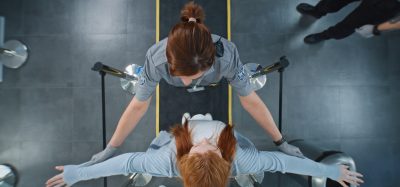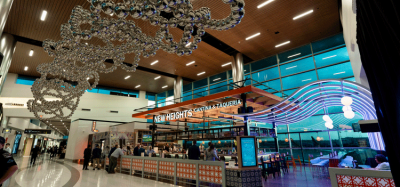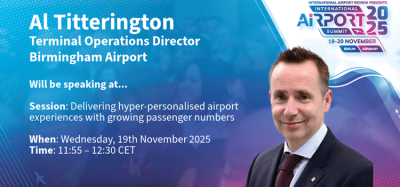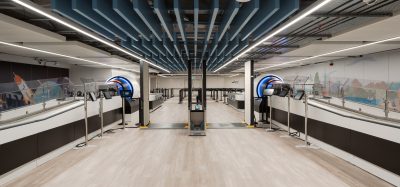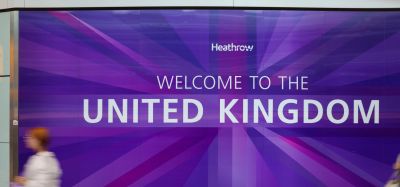Opportunities and challenges for urban aviation mobility
- Like
- Digg
- Del
- Tumblr
- VKontakte
- Buffer
- Love This
- Odnoklassniki
- Meneame
- Blogger
- Amazon
- Yahoo Mail
- Gmail
- AOL
- Newsvine
- HackerNews
- Evernote
- MySpace
- Mail.ru
- Viadeo
- Line
- Comments
- Yummly
- SMS
- Viber
- Telegram
- Subscribe
- Skype
- Facebook Messenger
- Kakao
- LiveJournal
- Yammer
- Edgar
- Fintel
- Mix
- Instapaper
- Copy Link
Posted: 15 July 2022 | Ivonne Kruger | No comments yet
International Airport Review’s Editorial Assistant, Lily Mae Pacey, speaks with Ivonne Kuger, Vice President Corporate Development at Munich Airport International, to discuss the development of urban air mobility.
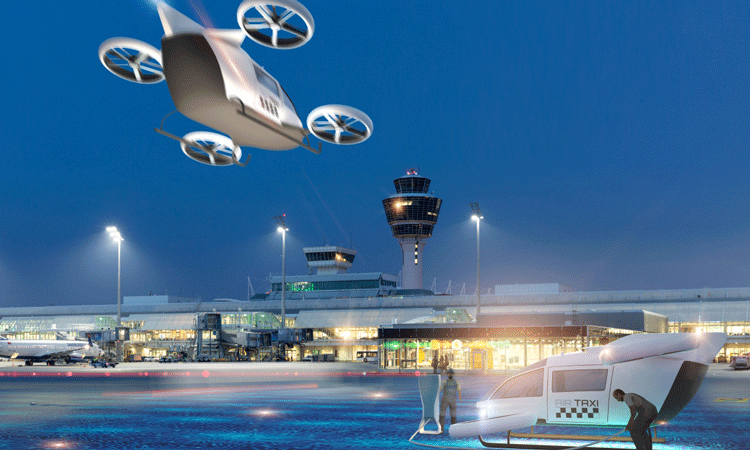

Credit: Munich Airport International (MUC)
Where does Urban Air Mobility stand today?
The development of urban air mobility (UAM) solutions is no longer a vision. It will soon become reality and will have significant implications for the transport and logistics sector worldwide.
As UAM develops, are there good reasons for airports to be actively involved?
There are indeed several good reasons for airports to be actively involved in developing and paving the way for this new form of transport. UAM will on one hand contribute to the decarbonisation of aviation. As European airports are committed to Net Zero by 2050 UAM will directly “pay into that account”. As an innovative mobility concept, it also has the potential to directly connect rural regions and remote places with airports, and last but not least, to decongest public transport in megacities. As Europe’s first 5-star airport, Munich Airport has always been at the forefront of innovation, adopting new technologies and business models for continuous improvement of operational efficiency, service quality, and profitability. The introduction of urban air mobility requires, amongst others, a high level of aviation expertise. For us, it is quite natural to get involved and participate in making it a reality.
Munich Airport is part of the recently launched Air Mobility Initiative (AMI). What is the idea behind this initiative?
The Air Mobility Initiative is a joint undertaking of corporate partners such as Airbus Urban Mobility, and start-ups, as well as renowned German research institutes and universities. We are proud to be one of the founding members and are looking forward to working with our partners towards the successful demonstration of air mobility solutions on our home turf. By combining knowledge and expertise of the different partners in the initiative, we will be able to develop a holistic solution paving the ground for commercial services. The joint objective is to develop sustainable UAM solutions and integrate them seamlessly into existing transport systems and urban environments. As part of the initiative, we are leading a project on the integration of ‘vertiports’ into airports. The aim of this project is to develop concepts and solutions for the planning, permitting, implementation and operation of vertiports at airports. To integrate a vertiport and eVTOL operations at a commercial airport, a variety of interdependencies and regulations must be considered: environmental impact, intermodality and connectivity issues, slot neutrality, approval of flight procedures or certification of ground infrastructure, to name just a few. New digital solutions are also needed to ensure a seamless travel chain. Last but not least, public and user acceptance will play a major role in the success of these new solutions. The projects of our other partners focus on the development and certification of ‘eVTOLs’ (drones and air taxis) and unmanned traffic management services, so-called UTM. The UTM activities deal with the safe and efficient navigation of vehicles on their routes in the lower airspace and how to integrate them into the existing air traffic management system.
TAKE A READ:
Munich Airport ranked among the world’s top 10 airports
Airbus and Munich Airport expand partnership to develop AAM solutions
AMI was launched in Munich with mainly Bavarian or Germany-based partners. Will the network also be open for international collaboration?
Bavaria and its capital city Munich are the perfect setting for AMI, providing a great innovator, founder, and start-up scene. 1,600 start-ups are at home in Munich alone. The region is also known for its strong focus on technology, IT, mobility, and aviation industries. Nevertheless, the majority of our partners are active globally just like us. The initiative is therefore open and new partners are welcome to join in the coming years. Munich Airport International (MAI) is a globally acting company – thus an international expansion of the initiative and collaboration with global partners is strongly desired.
What are the challenges and barriers for a successful realisation of urban air mobility? How does Munich Airport hope to help overcome these?
Beyond the obvious challenges of developing aircraft and preparing for certification, there are numerous concerns related to regulations, technology, and commercial viability. Right now, there is, for example, no existing legislation or regulatory framework for planning, developing and operating ground infrastructure for air mobility, so-called vertiports. MAI has joined EASA’s Vertiport Prototype Specifications Task Force to work with other industry partners in defining and bringing standards to market. Furthermore, we still lack suitable technologies for handling eVTOLs on the ground. A fundamental challenge will also be to supply sufficient energy – preferably from renewable energy sources – for rapid charging of the eVTOLs. With a faster turnaround, higher capacities can be realised. Another critical point will be to integrate eVTOLs within an airport’s controlled and busy air space. German Air Traffic Control (DFS) and MAI have started to investigate this issue and to work on solutions. In addition to all the technical and regulatory hurdles, solid business plans are needed for the economic viability of UAM. Our experts have developed a first traffic forecast and respective business plan model for vertiport operators, which is built on the idea of starting small and then expanding in line with traffic growth. And of course, at the end the use of air taxis must also be attractive for consumers in terms of cost, which means value for money needs to be guaranteed.
Biography


When the international business of Munich Airport was transferred into a 100 per cent subsidiary Munich Airport International GmbH (MAI), Ivonne took over the responsibility of managing the project portfolio for airport management, consulting and training services across the globe. In this position, she was one of the driving forces behind the business development and was instrumental in expanding the service portfolio of MAI to cover the whole lifecycle of airport infrastructure.
In 2020, Ivonne took over the newly established Corporate Development department of MAI and took the lead on establishing a global organization with operations on several continents. As EVP Corporate Development she is determined to shape the future of the company and further strengthen MAI’s value proposition.
Related topics
Advanced air mobility (AAM), Aircraft, Airport development, Airside operations, Capacity, New technologies, Passenger experience and seamless travel, Sustainability, Terminal operations



